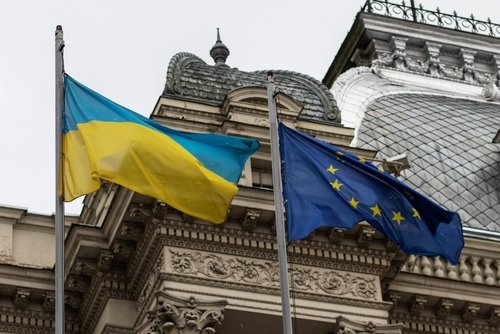Belgium (Brussels Morning Newspaper), Europeans are open to the idea of Ukraine joining the EU, says a new survey.
Support for Ukraine’s entry to the EU prevails in Denmark (50%) and in Poland (47%), with roughly divided opinion in Romania (32% support vs. 29% oppose), Germany (37% support vs. 39% oppose), and France (29% support vs. 35% oppose).
Austria is an outlier on the question of admitting Ukraine into the European bloc, with a majority (52%) opposing its possible accession, and only 28% in favour.
This is according to a new survey published by the European Council on Foreign Relations.
It says there are concerns that Ukraine’s accession could pose economic and security risks to the bloc and its member states – more so than the admittance of candidate countries from the Western Balkans.
Some 45% of those surveyed by ECFR believe that Ukraine joining the EU would have a ‘negative impact’ on the security of the EU, against 25% who see it as having a ‘positive impact’.
Almost 40 percent also believe Ukraine’s accession would have a ‘negative impact’ on the security of their country – while only 24% expect a ‘positive impact’.
The accession of countries of the Western Balkans carries comparatively less risk, according to respondents of the survey – with opinion split at, 33% and 23%, respectively, between those who see it as having a ‘negative’ or ‘positive’ impact on the security of the bloc.
In their analysis of the survey findings, ECFR senior policy fellows, Piotr Buras and Engjellushe Morina, suggest that there is a pressing need to “consolidate and secure the European space”, against a backdrop of conflict on Europe’s borders.
They call on EU leaders, who will gather in Brussels this week, to commence accession talks with Ukraine and Moldova and to establish a timeline of next steps for all other aspiring candidate countries.
Doing this, together with wider institutional reforms, will help reconcile citizen “scepticism” about the bloc’s ability to absorb new members and make clear why expansion is “imperative to the future of Europe”, according to Buras and Morina.
The findings come after ECFR published an audit of member states’ positions on EU enlargement in November.
That study indicates that there is broad agreement among governments on the need for enlargement as a geopolitical necessity, but also notes major disagreements and explores how these can be reconciled.




